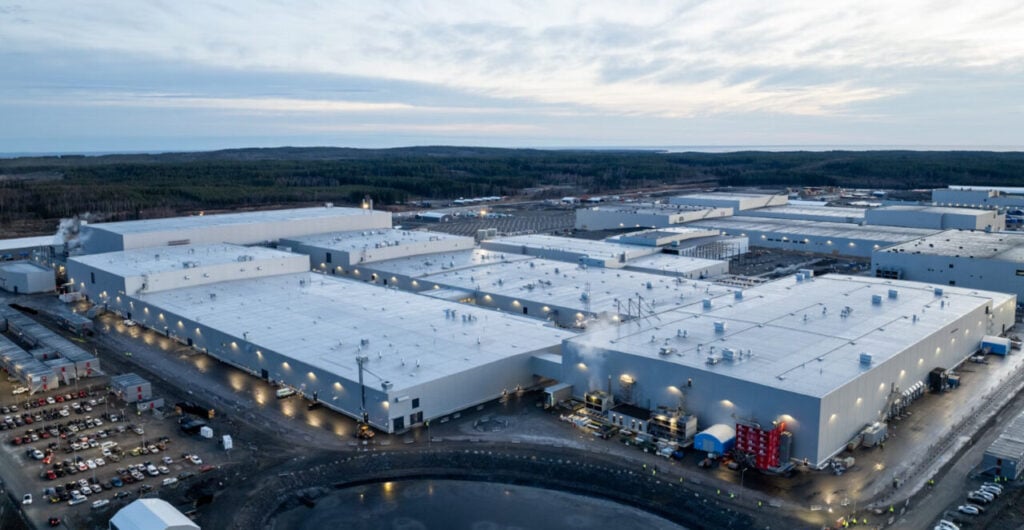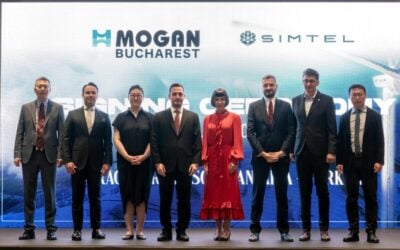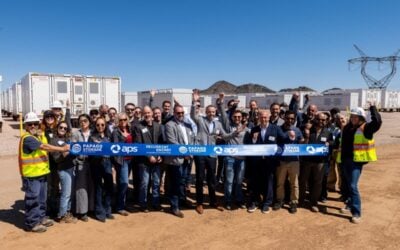
European battery company Northvolt has filed for Chapter 11 ‘reorganisation’ bankruptcy in the US, which it said will allow it to restructure its debt to continue scaling the business.
Northvolt is Europe’s most-funded homegrown lithium-ion battery company and has attempted to set up manufacturing and battery material projects across the continent and North America, but has struggled to scale up production and has neared the end of its cash reserves.
Enjoy 12 months of exclusive analysis
- Regular insight and analysis of the industry’s biggest developments
- In-depth interviews with the industry’s leading figures
- Annual digital subscription to the PV Tech Power journal
- Discounts on Solar Media’s portfolio of events, in-person and virtual
The Chapter 11 process, announced last week (21 November) will allow it to access US$145 million in cash collateral and US$100 million of debtor-in-possession (DIP) financing, and it will seek new investment opportunities from strategic and financial investors, as well as existing lenders, shareholders and customers. It was filed in the US Bankruptcy Court for the Southern District of Texas.
CEO Peter Carlsson, who co-founded the company in 2016, will step down as CEO while remaining as member of the board and a senior advisor. The firm was set up amidst a political push by Europe to establish its own electric vehicle (EV) battery industry to reduce reliance on China, which dominates the market.
The big three macro-economic challenges the company has faced are higher interest rates, an EV demand slowdown and increased competition from US and China, while commentators have blamed its management for a slow scale-up in battery production, which has seen it lose agreements with EV manufacturers.
Its three largest shareholders are automotive OEMs Volkswagen and BMW and investment bank Goldman Sachs, but its shareholder base is large and varied and includes Swedish state-owned power generation firm Vattenfall, engineering firm ABB, large vehicle OEM Scania as well as pension funds.
The company reportedly needs another US$1 billion to continue its business long-term. It currently has around 7,000 employees.
Non-core businesses sold or closed down including ESS unit
The company will continue to make deliveries to customers and pay wages to employees and operations are continuing at its flagship battery gigafactory in Skellefteå, Sweden, Northvolt Ett, and its Northvolt Labs in Västerås.
Northvolt primarily targeted the EV battery segment, with its first big customer being Scania, but has also entered the ESS space with a facility in Poland.
However the firm’s numerous non-cell projects are now on hold or being divested, following a strategic review this year from which it decided to sharpen its focus to battery cell production only.
In August, it closed a US project aimed at manufacturing high-performance lithium metal cells, via subsidiary Cuberg, and that site in California was recently acquired by lithium-sulfur battery startup Lyten Energy. The company has also sold or closed down its cathode active material (CAM) facilities in Sweden and will instead buy CAM from established suppliers.
Meanwhile, the company has shut down its energy storage system (ESS) assembly plant in Poland after failing to find a buyer for the business, which has 281 employees, and it will now seek a buyer for the physical factory. A separate Northvolt business based in Poland and Sweden, under the same Northvolt Systems subsidiary, which manufactures ESS units for industrial applications will now enter a sales process. Around 600 employees are employed by Northvolt Systems in total.
Northvolt’s VP communications discussed its stuttered scale-up in an interview with Energy-storage.news in March 2024 (Premium access).
‘Setback for Europe’s EV battery ambitions’
The news has provoked strong debate in the battery industry, including on business networking site LinkedIn.
Some have pointed the finger at the company’s management team and various decisions including choosing to launch projects covering the spectrum of battery cell manufacturing (in several markets), CAM production, recycling, ESS assembly and new battery technology research, before it had mastered cell production in its first facility.
Others have attributed the company’s struggles to the wider macroeconomic factors mentioned before, particularly the staggering capacity expansion and price falls coming from China’s lithium-ion battery industry, which dominates the market. Some in that camp still praise Carlsson and Northvolt for establishing Europe’s EV battery ambitions, even if Northvolt is not the one that goes on to lead the charge.
Henry Sanderson, executive editor at battery materials research publisher Benchmark Mineral Intelligence, called the news a “setback for Europe’s ambitions to build a homegrown electric vehicle battery producer to compete with China”.
A few years ago, the European battery ecosystem looked healthy with huge forecasted manufacturing capacity and billions being poured in from investors. However, since then the US has given a huge boost to its domestic battery industry with highly generous tax incentives for clean energy manufacturing, and prices from China have fallen more than anyone had forecasted.
Benchmark estimates that the costs of battery production are 29% higher in Europe than in China.
“‘Go big or go home’ was Northvolt’s initial mantra, which makes sense for the climate transition – yet the cost benefits of scale only come once initial production is mastered,” Anderson added.






